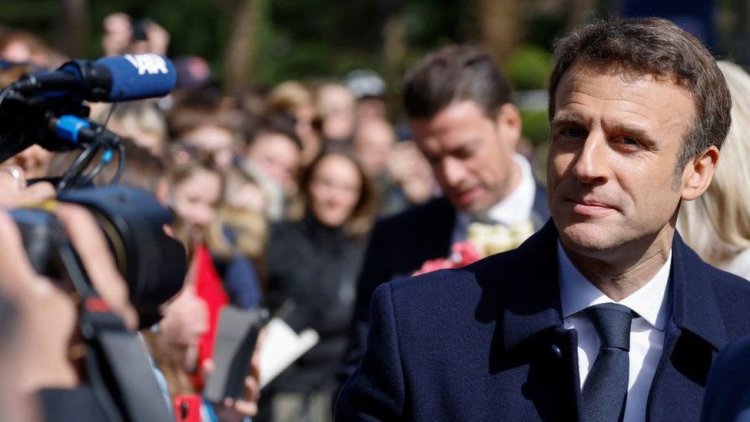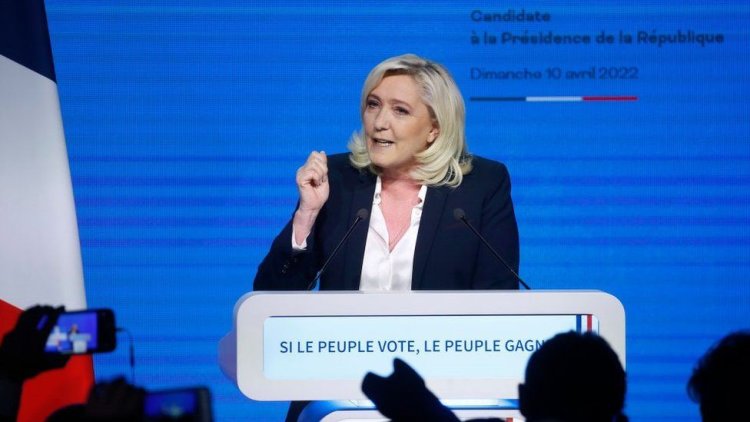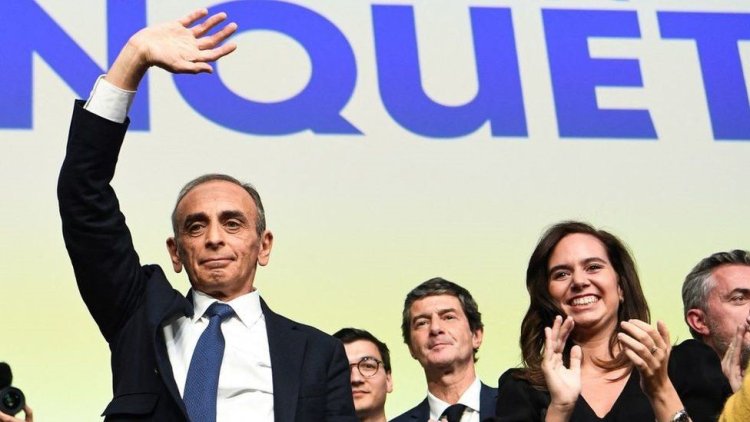Macron won't get a free pass this time in France's election.
Remember that only the top two candidates in France advance, so even a tiny margin can make a big difference. A second-round between Le Pen and Mélenchon was not completely out of the question.

It will be a rematch of the second round of the 2017 election when Emmanuel Macron thrashed Marine Le Pen. But no one should be under the impression that it will be easy this time.
Tactical voting changed the electoral map, according to estimates from round one.
Macron, the far-right, and the far-left were the three main camps among voters. Many voters who were considering alternative candidates in the last days of the campaign decided that they would rather support a frontrunner.
As a result, a large number of votes were transferred from Éric Zemmour, a hard-right nationalist commentator, to Marine Le Pen's party. Some conservative Republicans on the right-wing may have done the same.
On the left, voters concluded that neither Socialist Anne Hidalgo nor Green Yannick Jadot would be able to go to the second round. As a result, they swung heavily in favor of Jean-Luc Mélenchon, purely to retain a leftist in the race. Even though many Socialists and Greens actively dislike him.
In the middle, many voters who would have voted for the Republicans' Valérie Pécresse instead backed the incumbent. Why? Because they were concerned that Le Pen and/or Mélenchon would gain too much ground from behind.
Remember that only the top two candidates in France advance, so even a tiny margin can make a big difference. A second-round between Le Pen and Mélenchon was not completely out of the question.

The outcome has two implications.
One is the catastrophic devastation that has befallen France's two major political parties, the conservative right, and the socialist left, since 1958. Macron started this process five years ago, and it is now fully completed.
Both parties' candidates, including Anne Hidalgo of the Socialists, may have fallen short of the 5% level that allows them to claim back election expenses. The cost will be in the millions of euros, but the shame will be even worse. We can expect a lot of internal strife.
Macron has orchestrated everything in such a way that the schism in French politics is now undeniably the one he desired: between his own "realistic centrism" and "openness to the world" and his opponents' "extremism." Le Pen's "nationalist extremism" and Mélenchon's "utopian extremism."

So far, this division has served him well. It enables him to bring together the so-called "responsible" forces of the left and right, decimating the mainstream opposition and putting him in command of the landscape.
However, he must be concerned about the second lesson of this first-round vote.
This is because the so-called "irresponsible" forces of the extremes - his opponents - are becoming increasingly powerful.
"The anti-system parties now have the devotion of a majority of the French," prominent political observer Alain Duhamel said on Sunday night.

When Marine Le Pen's support is added to that of Éric Zemmour and a third "sovereigntist" candidate, Nicolas Dupont-Aignan, the far-right receives 33% of the vote, up to seven points from 2017.
When the far-left votes - for Mélenchon and the two Trotskyites - are added to the total votes cast for all "anti-system parties," the tally exceeds 50%.
Many of these people will vote for Macron in the second round for the same reason they did in the first: seeing the far-right in power is unthinkable to them. Others, on the other hand, will abstain, vote blank, or vote for Le Pen.
The truth is that the anti-Le Pen and anti-Macron votes are merging, with the former falling and the latter rising.
As a result, round two will not be a walkover like the first.

 Boakyewaa Lawrencia
Boakyewaa Lawrencia 



































